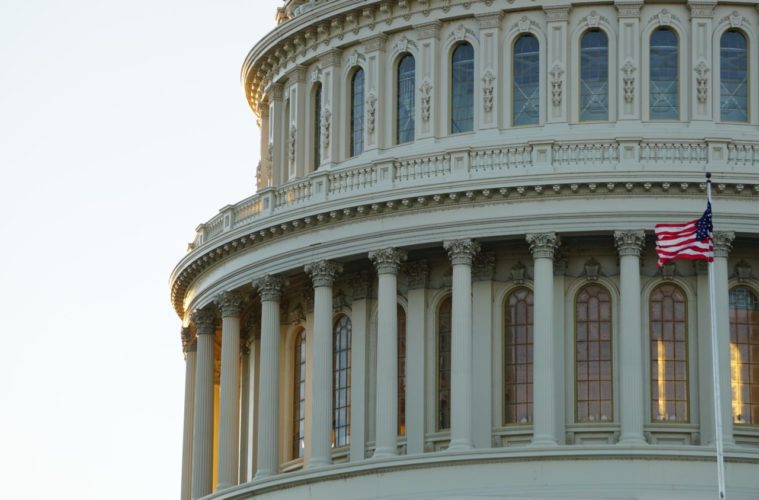On Wednesday, September 1, the Senate’s Democratic leadership saw a flood of input on the preliminary draft of the Cannabis Administration and Opportunity Act.
Most of the nation’s major cannabis reform organizations active on Capitol Hill offered their feedback on the federal bill to legalize pot nationwide, authored by Senate Majority Leader Chuck Schumer (D-NY), Senator Cory Booker (D-NJ) and Senator Ron Wyden (D-OR).
The general theme was a lot of enthusiasm with hopes of regulatory clarity.
“We are grateful for the leadership of Sens. Booker, Schumer, and Wyden to end an eight-decades long policy failure and appreciate the opportunity to provide feedback as the sponsoring offices refine the bill,” said Karen O’Keefe, state policies director at the Marijuana Policy Project. “Federal prohibition urgently needs to end. It has wasted billions of dollars while upending tens of thousands of lives – disproportionately those of Black and brown Americans – over a plant that is safer than alcohol.”
O’Keefe listed further goals for what cannabis legalization should look like. These goals included not adversely affecting immigration, federal public benefits and eligibility for a security clearance. She noted MPP would also prefer to see legalization retroactive, which means including expungement and re-sentencing and incentivizing state expungement.
O’Keefe again praised the direction of things so far but argued MPP believes the regulatory aspects need to be a lot clearer. If you mess that up, it would just derail everything by years as seen in some states.
“Our two major areas of concern are: the possible upending of state licensing and regulatory systems – driving sales underground – and the impact on medical cannabis access, including for those under the age of 21,” O’Keefe said. “Additionally, the CAO Act includes several provisions that reduce the harms the federal government inflicts on cannabis consumers. But it retains others, which disproportionately harm people of color. We strongly urge the sponsoring offices to more comprehensively do away with the harm inflicted on cannabis consumers, and individuals with past convictions, including by expanding expungement and re-sentencing provisions, ensuring parole and probation are not revoked for cannabis, and ending federal drug testing for cannabis.”
The National Cannabis Industry Association (NCIA) has submitted improvements to the bill on behalf of the legal cannabis industry.
“Ending nearly a century of disastrous prohibition policies is a monumental effort and one which should not be taken lightly,” said Aaron Smith, co-founder and chief executive officer of NCIA. “We appreciate Senate leadership for taking a big step toward that goal which a significant majority of Americans support. There is a lot of work left to be done and it is vital to include those most impacted by both prohibition and the proposed legislation in this process.”
NCIA called the initial language a thoughtful foundation for comprehensive reform. It also noted a lot of the language included clearly illustrates the authors’ engagement with stakeholders during the drafting process.
“It’s been gratifying to see NCIA’s previous regulatory proposals reflected in the four corners of the CAOA,” said Khurshid Khoja, chair of NCIA’s Board, co-chair of its Policy Council, and founder and CEO of Greenbridge Corporate Counsel PC. “I’m even more pleased that the authors’ offices have given us the opportunity to further inform and shape this landmark bill with robust industry input collected from a broad array of NCIA stakeholders.”
The nation’s oldest marijuana reform group, NORML, also weighed in. NORML Political Director Justin Strekal covered a lot of the positives mentioned by others before giving the list of changes NORML would like to see.
“We are confident that similar language, once finalized and formally introduced in the U.S. Senate, will possess bipartisan appeal – as we know that voters of all political parties strongly support repealing the federal government’s failed marijuana policies,” said Strekal.
NORML also called for strengthening civic protections. Providing relief to the people who had their lives devastated by a cannabis conviction would be a major component of that. Additionally, NORML wants lawmakers to revisit outdated employment policies regarding non-scientific testing for trace metabolic elements of THC, ensure that small and local businesses can compete both with larger corporations and the illicit market by reducing regulatory and tax burdens, and narrow the scope of the proposed excise tax.
Advertising disclosure: We may receive compensation for some of the links in our stories. Thank you for supporting LA Weekly and our advertisers.

